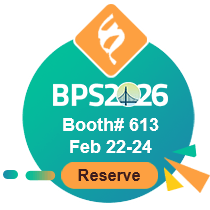Recombinant Rat TGFBR2 cell lysate
| Cat.No. : | TGFBR2-1374RCL |
| Product Overview : | Rat TGFBR2 derived in Human Cells. The whole cell lysate is provided in 1X Sample Buffer.Browse all transfected cell lysate positive controls |
- Specification
- Gene Information
- Related Products
- Download
| Species : | Rat |
| Source : | Human Cells |
| Tag : | Non |
| Preparation method : | Transfected cells were cultured for 48hrs before collection. The cells were lysed in modified RIPA buffer with cocktail of protease inhibitors. Cell debris was removed by centrifugation and then centrifuged to clarify the lysate. The cell lysate was boiled for 5 minutes in 1 x SDS sample buffer (50 mM Tris-HCl pH 6.8, 12.5% glycerol, 1% sodium dodecylsulfate, 0.01% bromophenol blue) containing 5% b-mercaptoethanol, and lyophilized. |
| Lysis buffer : | Modified RIPA Lysis Buffer: 50 mM Tris-HCl pH 7.4, 150 mM NaCl, 1mM EDTA, 1% Triton X-100, 0.1% SDS, 1% Sodium deoxycholate, 1mM PMSF |
| Quality control Testing : | 12.5% SDS-PAGE Stained with Coomassie Blue |
| Recommended Usage : | 1. Centrifuge the tube for a few seconds and ensure the pellet at the bottom of the tube.2. Re-dissolve the pellet using 200μL pure water and boiled for 2-5 min.3. Store it at -80°C. Recommend to aliquot the cell lysate into smaller quantities for optimal storage. Avoid repeated freeze-thaw cycles.Notes:The lysate is ready to load on SDS-PAGE for Western blot application. If dissociating conditions are required, add reducing agent prior to heating. |
| Stability : | Samples are stable for up to twelve months from date of receipt at -80°C |
| Storage Buffer : | 50 mM Tris-HCl pH 7.4, 150 mM NaCl, 1mM EDTA, 1% Triton X-100, 0.1% SDS, 1% Sodium deoxycholate, 1mM PMSF |
| Storage Instruction : | Lysate samples are stable for 12 months from date of receipt when stored at -80°C. Avoid repeated freeze-thaw cycles. Prior to SDS-PAGE fractionation, boil the lysate for 5 minutes. |
| Gene Name | Tgfbr2 transforming growth factor, beta receptor II [ Rattus norvegicus ] |
| Official Symbol | TGFBR2 |
| Synonyms | TGFBR2; transforming growth factor, beta receptor II; TGF-beta receptor type-2; TGFR-2; tbetaR-II; TGF-beta receptor type II; TGF-beta type II receptor; transforming growth factor beta, receptor 2; transforming growth factor, beta receptor 2; transforming growth factor, beta receptor IIT; transforming growth factor-b type II receptor; transforming growth factor beta receptor type II; transforming growth factor-beta receptor type II; transforming growth factor-beta type II receptor; Tgfbr2T; TGF-beta 2; |
| Gene ID | 81810 |
| mRNA Refseq | NM_031132 |
| Protein Refseq | NP_112394 |
| Pathway | Adherens junction, organism-specific biosystem; Adherens junction, conserved biosystem; Chagas disease (American trypanosomiasis), organism-specific biosystem; Chagas disease (American trypanosomiasis), conserved biosystem; Chronic myeloid leukemia, organism-specific biosystem; Chronic myeloid leukemia, conserved biosystem; Colorectal cancer, organism-specific biosystem; |
| Function | ATP binding; SMAD binding; glycosaminoglycan binding; metal ion binding; mitogen-activated protein kinase kinase kinase binding; nucleotide binding; protein binding; protein heterodimerization activity; protein homodimerization activity; receptor activity; receptor signaling protein serine/threonine kinase activity; transforming growth factor beta binding; transforming growth factor beta receptor activity, type II; transforming growth factor beta receptor activity, type II; transforming growth factor beta-activated receptor activity; transmembrane receptor protein serine/threonine kinase activity; type I transforming growth factor beta receptor binding; type III transforming growth factor beta receptor binding; |
| ◆ Recombinant Proteins | ||
| TGFBR2-464R | Active Recombinant Rhesus TGFBR2 protein, hFc-tagged | +Inquiry |
| Tgfbr2-01M | Active Recombinant Mouse Tgfbr2 Protein (Ile24-Asp184), mFc-tagged | +Inquiry |
| TGFBR2-05H | Recombinant Human TGFBR2 Protein, 23-166aa, C-hIgG-His tagged | +Inquiry |
| TGFBR2-0794M | Active Recombinant Mouse TGFBR2 protein, His-Avi-tagged, Biotinylated | +Inquiry |
| TGFBR2-2184H | Recombinant Human TGFBR2 Protein, His (Fc)-Avi-tagged | +Inquiry |
| ◆ Cell & Tissue Lysates | ||
| TGFBR2-2842HCL | Recombinant Human TGFBR2 cell lysate | +Inquiry |
| TGFBR2-1291CCL | Recombinant Cynomolgus TGFBR2 cell lysate | +Inquiry |
| TGFBR2-1374RCL | Recombinant Rat TGFBR2 cell lysate | +Inquiry |
Not For Human Consumption!
Inquiry
- Reviews (0)
- Q&As (0)
Ask a Question for All TGFBR2 Products
Required fields are marked with *
My Review for All TGFBR2 Products
Required fields are marked with *



